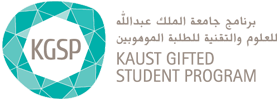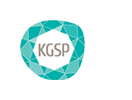KGSP Summer Enrichment Highlights
12/20/2017
 Highlights included:
Highlights included:
Adbulrahman Alfaraidi, a junior at the University of Southern California (USC), worked on a project titled “Functionalizing Hierarchical Porous Carbon” as a visiting student in the Giannelis lab at Cornell University, under the direction of Professor Emmanuel Giannelis. Abdulrahman was tasked with synthesizing material from precursors and functionalizing porous carbon, and strongly recommends this opportunity for future students based on the extensive knowledge he gained in just 10 weeks, and because “I was given the liberty to create something new”. Abdulrahman’s research was facilitated by KGSP Enrichment through a partnership with the Cornell Center for Materials Research (CCMR).
“I really enjoyed meeting and spending time with people in my program who come from all around the states and are passionate about scientific research.” -Abdulrahman AlFaraidi, pictured here (second row, second from the right) with his summer research group.
Mohammed Alsenani, a rising junior attending the University of Chicago, participated in an internship at the Massachusetts Institute of Technology’s (MIT) Center for Complex Engineering Systems (CCES). He investigated connections between the technological development of countries and their exports by constructing a tool called “Technology Space.” This tool aims to organize international patent data in tech, with the goal of better understanding planning for economic growth. Mohammed shared that in addition to the technical skills gain in programming, “my internship at CCES taught me how to tackle a research project independently, as I worked with minimal supervision…and delivered periodic status reports.”
Ghufran Alkhamis, a sophomore at Stanford University, participated in a research project titled “Effects of Inertia in Fluid Focusing Devices” in the Stanford Microfluidics Laboratory under the direction of Professor Juan G. Santiago. Ghufran was involved in coding the simulations of the microchannels and conducting experiments using the confocal microscopy. She also conducted comparative research of other academic papers on hydrodynamic focusing to compare their inertial conditions to that of her lab. Ghufran confirmed that the opportunity was “valuable in getting me connected to faculty members in my major.” As her first lab research experience, Ghufran also learned about teamwork and “especially (about the importance of) seeking the help of more experience colleagues… being a freshman and having limited knowledge of complex concepts in my major, I had to put extra work into familiarizing myself with the research material, which help me advance academically.”
Fras Baasher, a junior at the University of Wisconsin-Madison, was selected to participate in the Engineering Summer Undergraduate Research Experience (EnSURE program) at Michigan State University, through a partnership with the KGSP. EnSURE is a 10-week research program designed to engage students in an intensive, faculty-directed research project. Fras conducted research on the “Effect of Antimicrobial Nanoparticles on Size and Growth Rate of Bacteria” in the Alocilja Nano-Biosensors Lab, under the direction of Professor Evangelyn Alocilja. Fras held singular responsibility for important aspects of the research, including growing five species of bacteria and dispensing nanoparticles as droplets to see how the growth and size were affected. He worked independently to analyze data, and developed new lab skills. Fras’ research will be applied to biosensors for disease and infection detection.

GSP’s commitment to providing meaningful enrichment opportunities tailored to individual student needs, talents and professional goals differentiates the Scholarship from other programs of its kind. KGSP students benefit from participating in at least two such activities each year—one in the summer, and one during the regular academic term. Summer enrichment activities may include academic research at the home university, specialized research and enrichment programming at a visiting institution, industrial internships, and summer research placements with KAUST faculty. Additional opportunities available throughout the year include conferences, seminars, short courses, trainings, and engagement activities with KAUST faculty and leadership. In 2016/17 academic year, over 90 percent of all undergraduates—nearly 300 students—participated in such activities.

